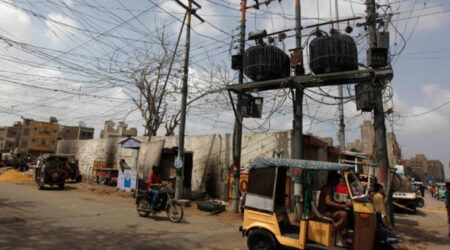‘Kunda’ connections affect consumers, cause economic deterioration
- Mehfooz Pakistan organizes webinar on safety implications of kunda connections
- Power theft affect paying consumers, makes industries uncompetitive
- Communities-based solutions and policies essential to address crisis
Power theft, particularly through the ‘kunda’ system, is a pervasive issue across Pakistan that disproportionately affects consumers and the economy. Experts have called for community-based solutions and implementing effective policies to address the crisis.
This was discussed on a webinar titled ‘Kunda System: Safety Implications, Impact on Communities and Economy of Pakistan’ organized by Mehfooz Pakistan, a safety organization. Hosted by current affairs commentator, Zarrar Khuhro, the experts discussed the socio-economic reasons for the emergency of the kunda system, safety hazards, and trivialization of the criminality.
It was mentioned there are approximately 1.4 million kunda connections while power theft costs Rs600 billion annually. Business analyst, Mr Ali Khizar, said power theft losses are absorbed by the utility or become part of the circular debt which is eventually passed on to the consumer. This leads to power disruption in high theft areas, eventually impacting paying consumers, communities and leads to economic deterioration.
Highlighting the impact of power theft on industry, Mr Shahid Sattar, Secretary-General APTMA, said cross subsidies are imposed on industries to cover line losses of residential areas, making export-based businesses uncompetitive. He said low-performing Discos such as SEPCO, HESCO receives bulk tariff subsidy to cover their losses.
When mentioned about the presence of ‘kunda mafia’ that provide illegal connections, urban planner and Associate Director Karachi UrbanLab, Mr Muhammad Toheed, said the system is complicated and entire communities are affected. He said collective punishment method looks at losses on the entire feeder that affects paying consumers.
Dr Asher Awan, an expert in energy economics, said power theft affects residential and industrial consumers as Pakistan has not achieved marginal costs to produce electricity, and subsidies are not designed to improve public welfare. Speaking on energy affordability, Dr Awan said the burden on a family should not exceed 5 percent of household incomes, but in Pakistan, per capita income has fallen and price of electricity has increased.
Mr Toheed stressed on raising community awareness and implementing effective policies. Mr Sattar suggested technical solutions such as shield wiring, step-down transformers, and prepaid meters to prevent kundas.












Leave a Reply